Mick Clifford: DJ Carey — hurling legend who sank to the depths in pursuit of a life full of lies
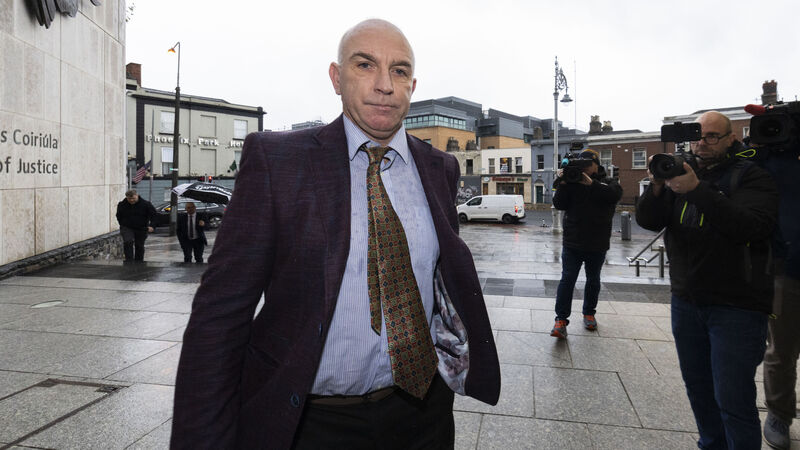
DJ Carey arriving at the Central Criminal Courts of Justice in Dublin on Friday. Picture: Collins Courts
He moved in a blur. When DJ Carey was at the peak of his powers there was no stopping him. His speed was one of his main attributes.
Of course he had quick hands and wielded his hurley like a high-calibre weapon, but his speed made him unstoppable.
Opponents spoke of how they believed they had a leash on him, had all angles covered. Yet once DJ got the sliotar in his hand, he was gone in a flash, through a gap unseen, around defenders as if they were made of water. Whoof! Just gone.
The next sight of him would be wheeling around from the goal, his free fist clenched, the ball lying dead at the back of the net.
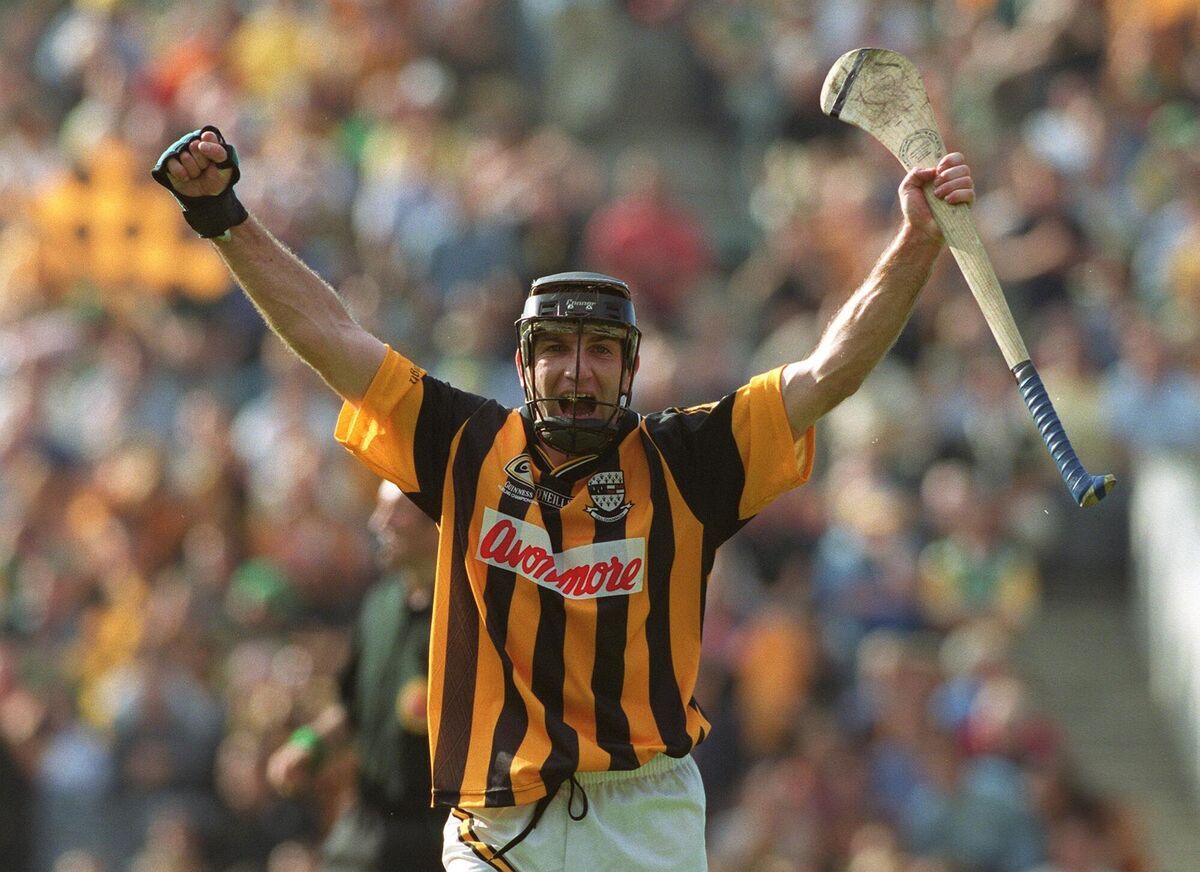
“In 100 years time,” pundit and hurling fan Eamon Dunphy once said, “people will be talking about DJ as a mythical figure.”
Twice during his career he was named hurler of the year and on nine occasions made the All Star team.
For a whole range of people who encountered Carey towards the end of his career, and after he retired, he was a blur of a different hue than that observed on playing fields.
Always ducking and diving.
One minute he was DJ, chatting about hurling and golf. The next, through knitted fingers he would be revealing his big secret, how that condition that dare not speak its name had him in its grip, letting you know that even a man like he, whose hurley was a wand, was being struck down by the most ruthless of diseases.
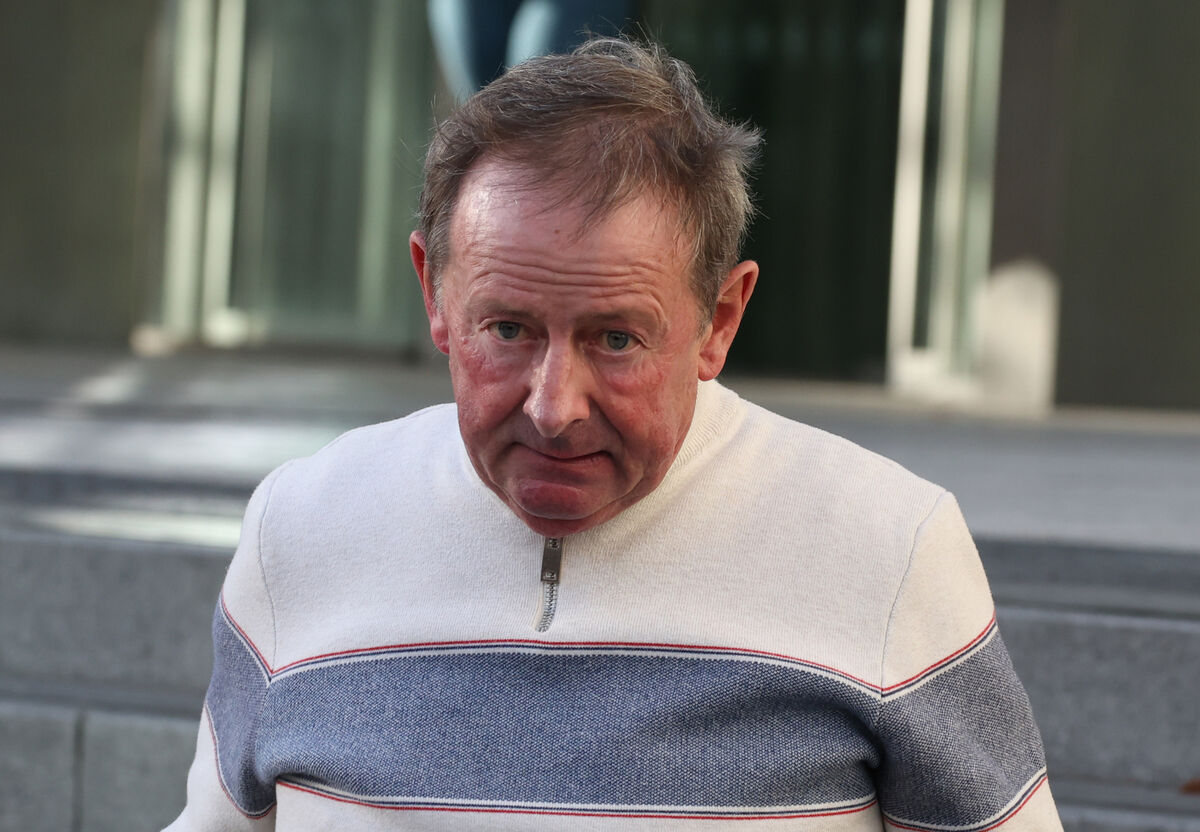
When fans and admirers spoke of his feats on the pitch, he was often cited as measuring up to Ring, JBM, and Eddie Keher.
Away from the game, there was increasingly only one figure to whom he was compared, and that was Walter Mitty.
On Friday, he was remanded in custody following his sentencing hearing for defrauding people by pretending he had cancer. In July he pleaded guilty at Dublin Circuit Criminal Court to 10 counts of falsely inducing people to give him money between 2014 and 2022. The counts involved 13 people, including billionaire businessman Denis O’Brien.
Ten further counts were taken into consideration. Judge Martin Nolan will deliver the sentence on Monday.
Great sportspeople, like great performance artists, can sometimes end up laid low by collateral damage from talent and fame. History has thrown up the boxer who ends up as a doorman, or a performing seal for millionaires in a tacky resort; the actor paraded into court to declare bankruptcy, head hung low for the shame of it; the retired jockey bound for prison because he stole to feed a gambling habit that was filling a gap left by departed glory.
It happens, and usually induces a sense of sympathy for the fallen hero who had once given so much pleasure. There is nearly always a way back.
If there is a way back for DJ Carey it will be a long, slow journey from the sordid depths he plumbed.
He was a businessman in his 20s, when the vast majority of his fellow elite hurlers were students or teachers or farmers.
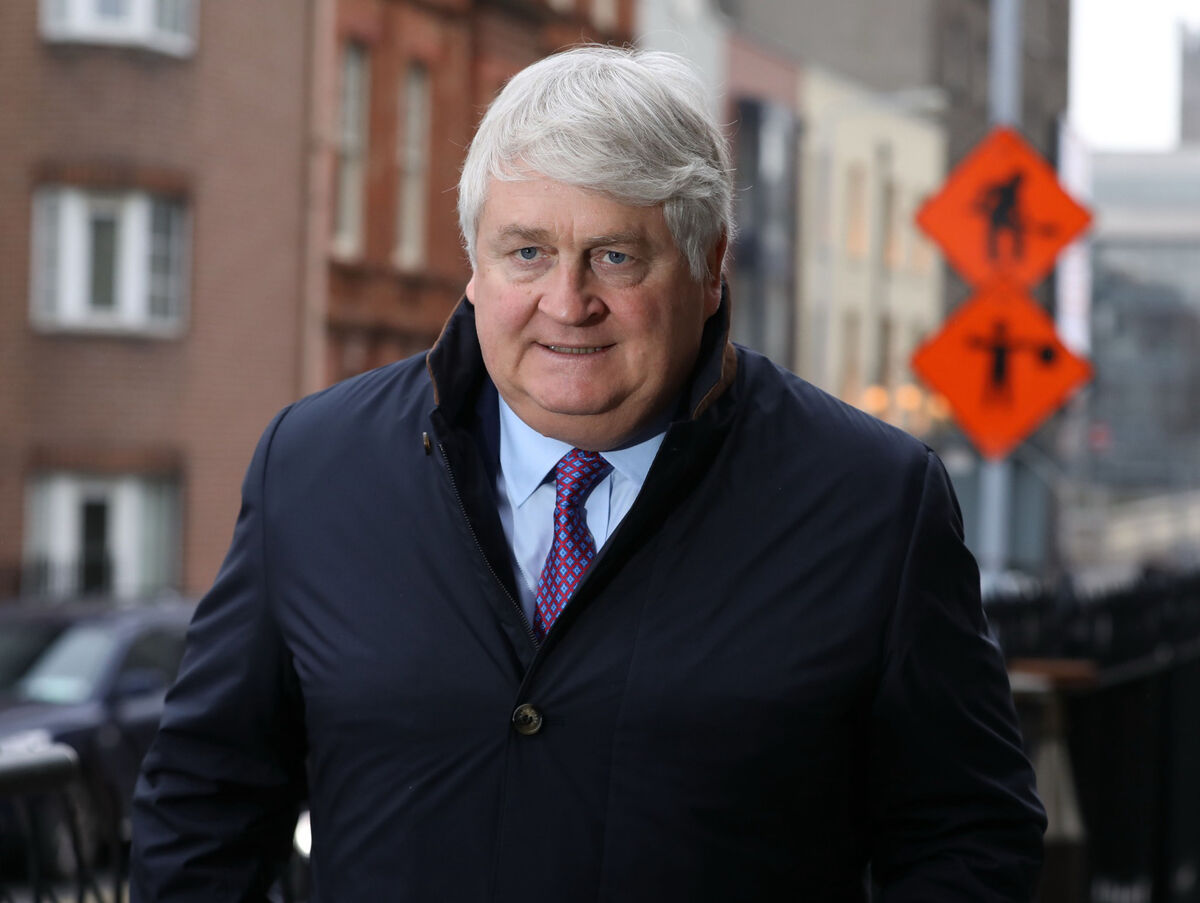
From early on he saw the potential to make a few bob and set up a cleaning supplies business. For a while, things went OK.
The economy was beginning to buzz, money loosening up. Hurling was going through a renaissance. Somebody of DJ’s outrageous talent couldn’t but make money while the Celtic Tiger was at a gallop.
He was married with two children while in the prime of his career.
Then, on the morning of the 2003 All-Ireland final, a newspaper revealed that his marriage was over. The scoop was the kind of one that gives media a bad name.
Pretty soon after that it emerged that he was in a relationship with an English businesswoman, Sarah Newman.
Soon Sarah had her own corner of celebrity square when she took up the role of one of the Dragons in the TV entrepreneurial programme, Dragon’s Den.
If success and fulfillment are measured alone by celebrity and wealth then the couple were living the dream. They were a constant presence on the social scene, often at Croke Park, always for major golfing events around the country.
They appeared together on the RTÉ travel programme No Frontiers. Apart from a home in Kilkenny, they shared another in Dublin and purchased a salubrious property in the exclusive K Club.
DJ Carey told author Denis Walsh in the book Hurling: The Revolution Years that they had to retain security guards “because we were being followed and we were being photographed and all sorts of stuff was going on”.
Yet behind it all was something of a facade. Newman’s record showed she had a business head. DJ, on the other hand, had the cut of a man flying by the seat of his pants.
A more grounded individual, even one in thrall to an extravagant lifestyle, could have found employment in a cushy number, made a pile of money on the back of his celebrity, and rubbed shoulders with whomever he wanted. But Carey wanted more and in retrospect he was simply ill-equipped to run any kind of a business.
In a bitterly ironic foretaste of what was to come, he did experience serious health difficulties at the age of 33, while still playing.
An issue over his heart arose and he dealt with it, but the same problem has reappeared now and again.
Like so many others, Carey and Newman were walloped by the 2008 economic crash. It wasn’t long afterwards that the first signs began to surface of a pattern that would persist until he was rumbled.
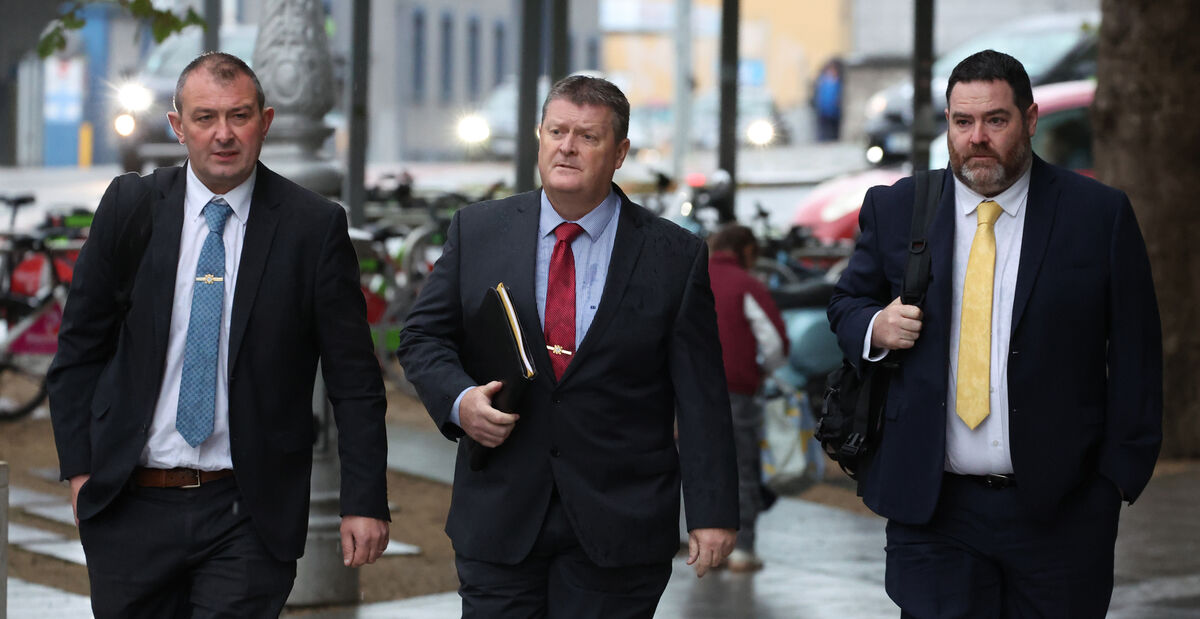
He told an acquaintance that he needed money to address health difficulties. In Eimear Ní Bhraonáin’s just-published book on Carey, The Dodger, this man revealed that the former hurler didn’t specify his difficulties.
“He came to me and he needed help. He was going through health stuff and asked for a loan… I assumed I was giving the guy a few quid to help him out”. Cancer was never mentioned. The condition, however, would be explicitly stated, hinted at, and referenced many times over the following decade.
Brain cancer was the one that he most often cited. And Seattle in the US was where he repeatedly told people he had to attend frequently for treatment.
Life was undoubtedly difficult for him during those years. There was a judgement to the value of €9.5m recorded against him from AIB. His relationship with Newman collapsed under the strain of their financial difficulties.
There followed a succession of essentially Micky Mouse jobs and girlfriends who all ended up lending him money.
Despite having apparently fallen on hard times, he was still a fixture at major sporting events, such as the Superbowl and big golf tournaments in the US. And, every now and again, he whispered in somebody’s ear and extended his paw.
At various points he produced “evidence” of his treatment, including the now infamous shot of him in bed hooked up to equipment, the personification of vulnerability.
The bitter irony is that there is every chance those he put the arm on would have attempted to help him out even if he didn’t resort to contemptible lies.
In 2017, the Kilkenny People produced a list of the storied county’s top hurlers over the previous 50 years. Henry Shefflin was in the mix, as was Eddie Keher and TJ Reid. But the number one who stood above them all was DJ Carey. While his life was precariously balanced between dirty reality and craven fiction, his legend continued to grow.
In 2020, he was appointed as a selector in Brian Cody’s management for the Kilkenny senior team.
According to The Dodger, around this time Carey approached a figure in Leinster hurling looking for help from a benevolent fund in the association.
He claimed, as he so frequently did, that what he was suffering from was multiple myeloma and he needed to travel to the US for treatment.
“The Leinster source contacted Kilkenny GAA, and word came back that DJ should not be given any money,” Ni Bhraonáin writes. “The Kilkenny GAA person who rang the Leinster source did not explicitly say DJ was lying about his illness but agreed it would be unwise to hand over funds.”
There were dozens of other examples of his lies and complete disregard for what he was doing, how his deception might impact those who experienced cancer and their loved ones.
The details are sordid and pathetic, and would be dismissed as heartless greed from a conman if perpetrated by somebody other than a sportsman who had once thrilled the masses.
On one level, that made it all the worse for it was his legend, his celebrity, that he was conning on.
The GAA may now prove to be his salvation.
There is always a way back and within the association doors are rarely ever closed.
If he is so minded, he may be in a position to make amends and show that there can be second acts in GAA lives.
That will be up to him, and he will require all the fortitude and resilience that once saw him scale hurling’s peaks.
He will also need to be honest with himself, his victims, and anybody who clings to his legend about the depths he sank to in pursuit of a life full of lies.





